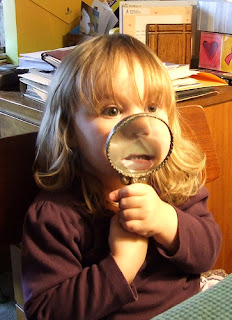 This is our last true reflection week. After this we will
focus on your projects and helping you polish your reports. So this week’s
reflection activities are going to take more of a Q-and-A type approach. I’m
going to tell you about my career as a professional writer and then encourage
you to ask questions about the areas that interest you the most. I hope this
will help you think about the variety of options available to you in terms of
professional writing.
This is our last true reflection week. After this we will
focus on your projects and helping you polish your reports. So this week’s
reflection activities are going to take more of a Q-and-A type approach. I’m
going to tell you about my career as a professional writer and then encourage
you to ask questions about the areas that interest you the most. I hope this
will help you think about the variety of options available to you in terms of
professional writing.
I graduated from SUNY College at Plattsburgh with a BA in
English with a concentration in journalism. While still in college I worked for
the campus newspaper as a reporter, layout editor, and editor-in-chief. In
addition, I interned in the college public relations office and published my
first magazine article in a regional publication.
My first job was with Wolfe Publications – a community
newspaper chain in the Greater Rochester (NY) area. I was editor of The Webster
Post and a staff writer for the chain. I had a small staff (a couple ladies who
ran the Webster office and handled society items) and had access to the
photographers and production staff of the main office. I was given great
freedom as I worked in a satellite office far away from the powers-that-be. I
worked for Wolfe for six years – right up until my husband and I moved to
Kentucky.
While I was working for Wolfe I decided to pursue a dream
of mine – writing a novel. I wrote a historical romance set in the 1600s in
Holland and America. Then I found that was the easy part – trying to sell my
novel would be much more difficult. In the end, I did publish it with a small
publisher who also contracted to publish the sequel and then went belly-up
after paying only one royalty check on the first book and before the second went to press. My search for a publisher did lead me to
the Romance Writers of America and I attended a conference in Buffalo, NY,
before moving to Kentucky and then in Kentucky I became very involved in the
organization – eventually taking on a leadership role in the Kentucky chapter.
This gave me contacts and mentors which eventually led to another two-book
contract but this time with a major mass market publisher. Those books did get
published (both set in Revolutionary War Kentucky territory).
My husband had a job when we moved to Kentucky but I did
not and my first two years were marked by a slew of jobs. My first job was
serving as editor for a start-up magazine called Lexington This Month which
managed to put out three issues before closing up. However, that experience
brought me contacts which led to additional freelance gigs including ACE
Weekly, The Lane Report (I was on staff there for several years), Kentucky
Living, and Kentucky Monthly as well as a short-term full-time contract at
Lexington Philharmonic. In addition, I did some writing for a vocational
publication. I think that covers most of my jobs.
However, working piece-meal like this is not a good way
to get ahead so when the opportunity came to join the staff of the Jessamine
Journal doing much the same work I had for The Webster Post I took the job. I worked there for
less than a year (I didn’t really like the working situation there) before
moving to the Mt. Sterling Advocate as a reporter. After a few years I was
promoted to managing editor (which meant I was in charge of the newsroom staff
and assigning stories as well as designing each issue).
After a few years of that I realized that there was no
real career advancement left for me in newspapers and I was ready for a change.
I decided to go back to school and get a
Master’s in English so I could teach at the college level. However, going to
school full-time (even with a graduate assistantship) would be a challenge for
us financially as it would mean giving up my income. I also suspected that I
would miss writing, even though I still had some freelance gigs (The Lane
Report plus occasional articles for Kentucky Living and Kentucky Monthly), so I
decided to go into web publishing.
 I started out publishing two weekly ezines (electronic
magazines) – The QuizQueen (themed trivia quizzes) and JustFolks (featuring
profiles of inspiring people) and eventually ended up with four weekly ezines
and two daily ezines plus a monthly trivia contest. These were actually fairly
profitable if time-consuming. Mainly I made money by selling advertising slots
(I had a subscriber base in the thousands). I published my ezines right up to the
point where I entered my Ph.D. program because they were a nice additional
income even after I was teaching full-time. However, I knew the addition of
graduate classes to my already full schedule (as a full-time MSU instructor and
a mom) would make it impossible to keep up my ezine publishing schedule.
However, I had a lot of trivia quizzes and articles written so I decided to
switch up my web publishing business to a more flexible model that I could
attend to when I had time and let earn passive income when I did not. This
meant for a while I had more than 100 web sites with blogs and/or articles
posted on theme in various themes – usually with affiliate programs posted on
them but even that is time consuming as you need to work to drive traffic and
keep up-to-date with affiliate programs so I have let those web sites go and
now the only online income I have is through Squidoo because that is
totally passive. However, I am still earning a couple of hundred bucks a month
and sometimes more which is fine by me. I’m sure I could earn more (I know
Squidoo folks earning more than a $1,000 a month) if I put the time into it but
I just can’t. However, just to give you an example this lens: Inspirational Messages
About Life has earned me $1100 in lifetime royalties ($30 to $50 a month).
I started out publishing two weekly ezines (electronic
magazines) – The QuizQueen (themed trivia quizzes) and JustFolks (featuring
profiles of inspiring people) and eventually ended up with four weekly ezines
and two daily ezines plus a monthly trivia contest. These were actually fairly
profitable if time-consuming. Mainly I made money by selling advertising slots
(I had a subscriber base in the thousands). I published my ezines right up to the
point where I entered my Ph.D. program because they were a nice additional
income even after I was teaching full-time. However, I knew the addition of
graduate classes to my already full schedule (as a full-time MSU instructor and
a mom) would make it impossible to keep up my ezine publishing schedule.
However, I had a lot of trivia quizzes and articles written so I decided to
switch up my web publishing business to a more flexible model that I could
attend to when I had time and let earn passive income when I did not. This
meant for a while I had more than 100 web sites with blogs and/or articles
posted on theme in various themes – usually with affiliate programs posted on
them but even that is time consuming as you need to work to drive traffic and
keep up-to-date with affiliate programs so I have let those web sites go and
now the only online income I have is through Squidoo because that is
totally passive. However, I am still earning a couple of hundred bucks a month
and sometimes more which is fine by me. I’m sure I could earn more (I know
Squidoo folks earning more than a $1,000 a month) if I put the time into it but
I just can’t. However, just to give you an example this lens: Inspirational Messages
About Life has earned me $1100 in lifetime royalties ($30 to $50 a month).
So journal about what you would love to see happen in
your own future career (write for a living, publish a novel, work for a nonprofit), ask questions in the discussion board about my
experiences, and Tweet something key.





